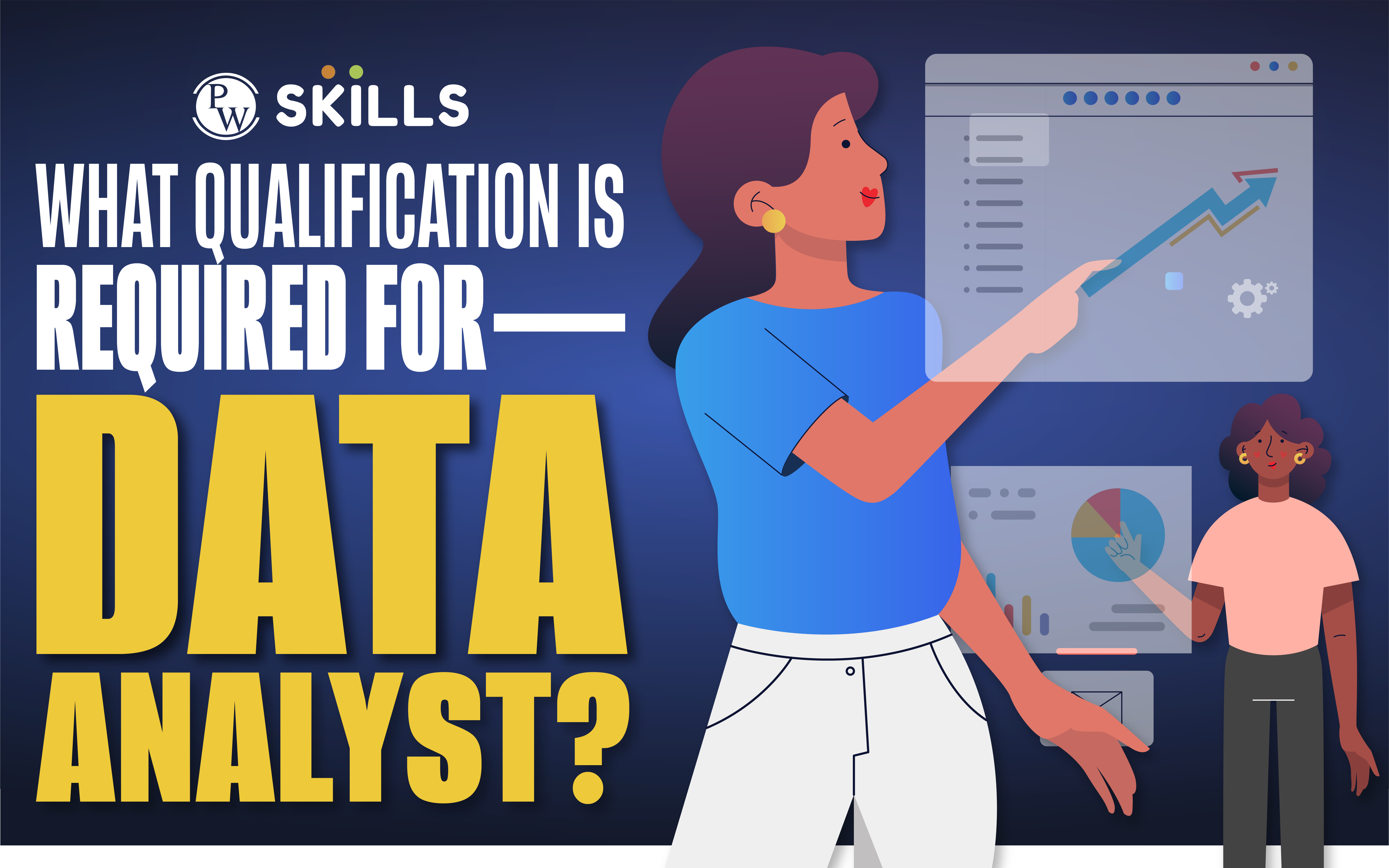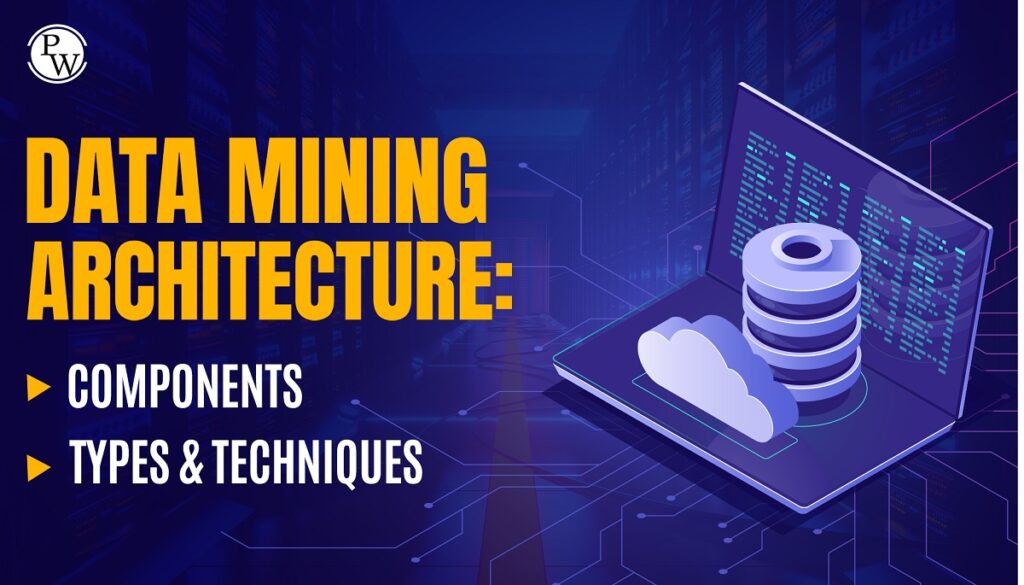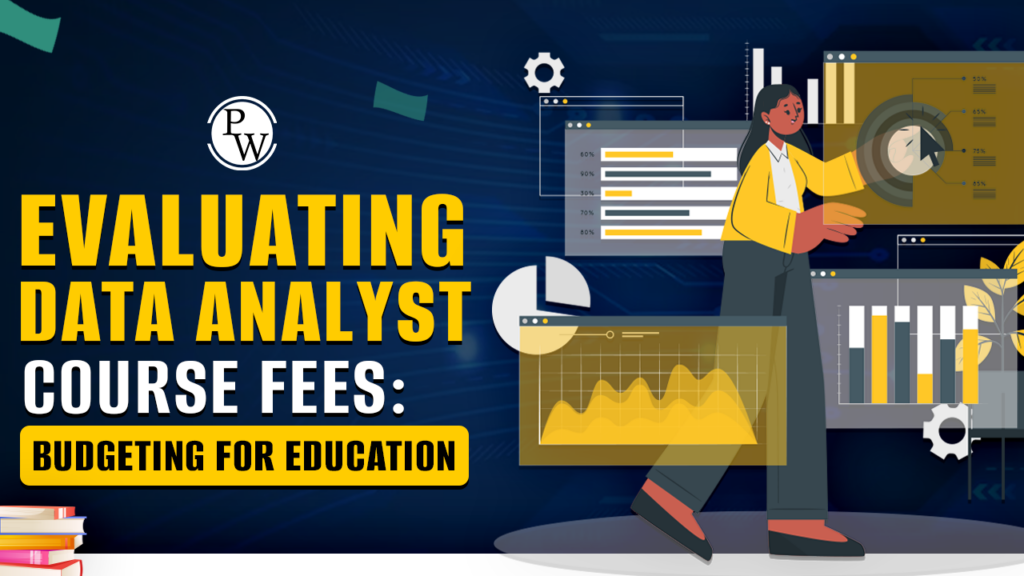Data Analyst Qualifications: The typical qualification required for a data analyst is a bachelor’s degree in a relevant field such as statistics, mathematics, or computer science, along with proficiency in programming languages and data analysis tools. The role of a data analyst has been pivotal in driving informed decision-making across various industries.
As organisations strive to harness the power of data, the demand for skilled professionals who can unravel insights from complex datasets has skyrocketed. In this blog, we’ll talk about the data analyst qualifications, skills required, steps to become and much more!
Recommended Technical Course
- MERN Full Stack Development Course
- Generative AI Course
- System Design Workshop
- Java+DSA 1.0 Course
- Full Stack Web Dev 1.0 Course
- Data Science with ML 1.0 Course
What Is Data Analysis?
Data analytics involves examining, refining, converting, and modelling information for insightful discoveries, conclusive findings, and decision support. It requires diverse methods to extract valuable insights from raw data.
Importance of Data Analysis
In today’s data-saturated world, deciphering information is a vital skill. Data analysis enables organisations to spot trends, make predictions, and gain a competitive advantage. Be it finance, healthcare, marketing, or any sector, data analysis significantly influences strategy shaping and performance optimization.
Types of Data Analysis
- Descriptive Analysis: Summarising and presenting data to describe its main features.
- Diagnostic Analysis: Identifying patterns and relationships to understand the cause of specific outcomes.
- Predictive Analysis: Using data to forecast future trends and outcomes.
- Prescriptive Analysis: Recommending actions based on the analysis of past data.
What Does a Data Analyst Do?
Data analysts are tasked with a myriad of responsibilities that revolve around turning raw data into actionable insights. This includes:
- Collecting and processing data from various sources.
- Cleaning and validating datasets to ensure accuracy.
- Analysing data to identify patterns, trends, and correlations.
- Creating visualisations and reports to communicate findings.
- Collaborating with teams to provide data-driven recommendations.
Real-World Applications:
The applications of data analysis are vast and varied. In finance, analysts may use historical data to predict market trends, while in healthcare, data analysis can optimise patient care by identifying patterns in medical records. From e-commerce to sports analytics, the possibilities are endless, making data analysts indispensable across industries.
Collaboration in the Field:
Data analysts often work in tandem with data scientists, engineers, and business stakeholders. The synergy between these roles ensures that the insights gleaned from data align with organisational goals and drive meaningful outcomes.
Also read: 5 Challenges of Data Analytics Every Data Analyst Faces!
Data Analyst Qualifications in India
Educational Background:
The journey to becoming a data analyst typically begins with a solid educational foundation. While various paths can lead to this role, certain qualifications are commonly sought after:
- Relevant Degrees: A background in statistics, mathematics, computer science, or a related field provides a strong base.
- Specialised Programs: Many universities and online platforms offer specialised programs in data analytics, equipping aspiring analysts with practical skills and industry-relevant knowledge.
Technical Skills:
In addition to educational qualifications, data analysts need a robust set of technical skills to excel in their roles:
- Programming Proficiency: Languages like Python and R are commonly used for data analysis and manipulation.
- Data Visualization: Tools such as Tableau and Power BI help in creating compelling visualisations that convey insights effectively.
- Database Management: A solid understanding of database systems and querying languages, particularly SQL, is crucial.
Soft Skills:
While technical prowess is vital, soft skills play a complementary role in a data analyst’s success:
- Analytical Thinking: The ability to dissect complex problems and derive meaningful solutions.
- Communication Skills: Effectively conveying findings to both technical and non-technical stakeholders.
- Teamwork: Collaborating with cross-functional teams to align analyses with business objectives.
Data Analyst Salary in India
The compensation for data analysts in India varies based on factors such as experience, location, and industry. As of 2024, the average salary for a data analyst in India is Rs. 6,54,000.
Several factors influence the salary of a data analyst:
- Experience: As with any profession, experience plays a pivotal role in determining salary levels.
- Location: Salaries often vary based on the cost of living in different cities.
- Industry: Certain industries, such as finance or healthcare, may offer higher salaries for data analysts due to the specialised knowledge required.
The field of data analysis is dynamic, with ample opportunities for career advancement. As organisations continue to recognize the value of data-driven decision-making, experienced data analysts may progress to roles such as data scientist, data engineer, or even managerial positions.
Is Data Analyst a Good Career?
The Indian job market for data analysts is flourishing, driven by business digitization and escalating reliance on data. The demand for adept data analysts is anticipated to rise continuously.
Data analysts are sought after in a myriad of industries, including:
- Finance: Analysing financial data to inform investment decisions.
- Healthcare: Extracting insights from patient records for improved care.
- E-commerce: Utilising data to optimise marketing strategies and enhance customer experiences.
Choosing a data analysis career can be gratifying, providing the fulfilment of tackling intricate problems and contributing to organisational triumphs. Nevertheless, challenges exist, including the necessity for perpetual learning to keep pace with technological advancements and the fast-paced industry nature.
Also read: Evaluating Data Analyst Course Fees: Budgeting for Education
Skills Required to Become a Data Analyst
Becoming a skilled data analyst demands a diverse skill set blending technical mastery with analytical acumen, effective communication, and collaborative abilities. Delve into a comprehensive exploration of the skills essential for thriving in the dynamic realm of data analysis.
Technical Skills
- Languages: A data analyst should be well-versed in programming languages commonly used in data analysis, such as Python or R. Proficiency in these languages allows for efficient data manipulation, statistical analysis, and the development of data-driven models.
- Tools: Mastery of data visualisation tools like Tableau, Power BI, or Matplotlib is crucial. The ability to translate complex data sets into visually compelling charts and graphs enhances communication and facilitates a deeper understanding of insights.
- SQL (Structured Query Language): A fundamental skill for any data analyst, SQL enables effective interaction with databases. Competency in writing and executing SQL queries is essential for extracting, transforming, and analysing data stored in relational databases.
Analytical Skills
- Problem Identification: Data analysts need the ability to identify key problems or challenges within a dataset. Critical thinking allows for the formulation of relevant questions and hypotheses to guide the analysis process.
- Hypothesis Testing: The capacity to design and conduct hypothesis tests is vital. Data analysts should be adept at selecting the appropriate statistical tests to validate or reject hypotheses, contributing to evidence-based decision-making.
Communication and Teamwork
- Data Storytelling: Data analysts must convey their findings effectively to a diverse audience, including non-technical stakeholders. The skill of data storytelling involves presenting insights in a clear, compelling narrative that resonates with the target audience.
- Cross-Functional Collaboration: Data analysts often work in interdisciplinary teams. Collaborative skills are essential for effective communication with colleagues from different backgrounds, ensuring that data insights align with organisational objectives.
- Report Writing: The ability to document and articulate the analysis process and results is crucial. Well-structured reports provide transparency and serve as valuable references for future analyses.
Additional Skills
- Data Cleaning and Validation: Meticulous attention to detail is required during the data cleaning and validation process. Ensuring the accuracy and integrity of data sets is fundamental to producing reliable insights.
- Project Management: Data analysts often juggle multiple projects simultaneously. Effective time management and project prioritisation are key to meeting deadlines and delivering high-quality analyses.
- Adaptability: The field of data analysis is dynamic, with new tools and techniques emerging regularly. A commitment to continuous learning is crucial for staying abreast of industry trends and technological advancements.
- Industry Understanding: Developing domain-specific knowledge enhances the context in which data analyses are conducted. A data analyst with a deep understanding of the industry can generate more meaningful insights and recommendations.
Also read: Top 10 Data Analytics Tools for 2024
How to Become a Data Analyst with No Experience?
Follow these steps to become a data analyst with no experience:
Building a Strong Educational Foundation
- Online Courses and Certifications: Platforms like Coursera, edX, and Udacity offer courses and certifications in data analysis.
- Self-Study: Utilising online resources and textbooks to gain a solid understanding of data analysis fundamentals.
Gaining Practical Experience
- Internships: Seeking internships or entry-level positions to gain hands-on experience.
- Freelance Projects: Engaging in freelance or personal projects to build a portfolio.
Showcasing Skills Through a Portfolio:
- Create a Portfolio: Developing a portfolio showcasing projects and analyses undertaken.
- GitHub Repository: Sharing code and projects on platforms like GitHub to demonstrate proficiency.
Conclusion
Mastering data analysis demands a blend of learning, technical prowess, and hands-on practice. It’s a dynamic domain, providing not just profitable prospects but a chance to impact a company’s triumph profoundly. For those aspiring to be data analysts, the journey involves refining skills, data analyst qualifications, staying abreast of industry shifts, and tapping into the abundant digital resources of our era. The future is all about data, and those capable of dissecting it will undeniably wield significant influence in steering its course.
If you want to become a high-paid data analyst, then the PhysicsWallah Data Analytics course could be just what you need! Our course is mentored by industry experts so that you stay ahead of your competition. So, don’t wait! Apply the coupon code – “READER” during checkout and get an exclusive discount on this course. Enroll now!
Also read: 11 Data Analyst Skills You Need to Get Hired in 2024
FAQs
How Can I Showcase My Soft Skills as a Data Analyst?
While technical skills are crucial, soft skills play a significant role in your success as a data analyst. Showcase your soft skills by highlighting instances where effective communication, teamwork, adaptability, and problem-solving contributed to successful data analysis or project outcomes.
Is Advanced Programming Necessary for Entry-Level Data Analysts?
While entry-level data analysts may not need advanced programming skills, having a basic understanding of programming languages like Python or R can be advantageous. It opens the door to more advanced analyses and automation, enhancing your versatility as an analyst.
What Are Some Effective Strategies for Time Management in Data Analysis?
Time management is vital in the fast-paced world of data analysis. Strategies include prioritising tasks based on deadlines and importance, breaking down projects into manageable steps, and using tools like project management software to stay organised and on schedule.
How Can I Ensure Data Security and Privacy in My Analyses?
Safeguarding data is a critical aspect of data analysis. Ensure data security and privacy by adhering to data governance principles, implementing encryption measures, and staying informed about relevant regulations such as GDPR or HIPAA. Prioritise ethical data practices to build trust with stakeholders and protect sensitive information.
What Certifications Can Boost My Credibility as a Data Analyst?
Certifications can enhance your credibility. Consider pursuing certifications from recognized institutions such as Microsoft's Certified: Data Analyst Associate, Google Data Analytics Professional Certificate, or SAS Certified Data Scientist. These certifications validate your skills and can set you apart in the competitive job market.





